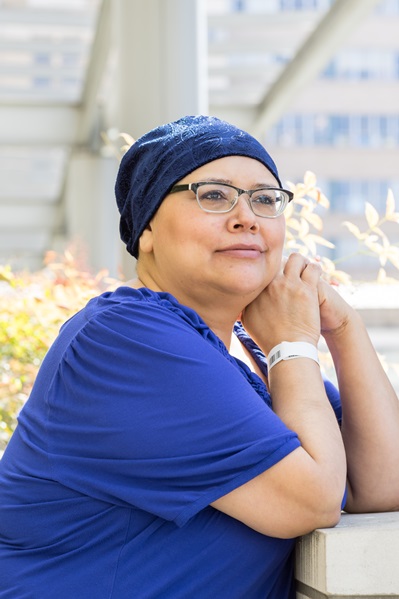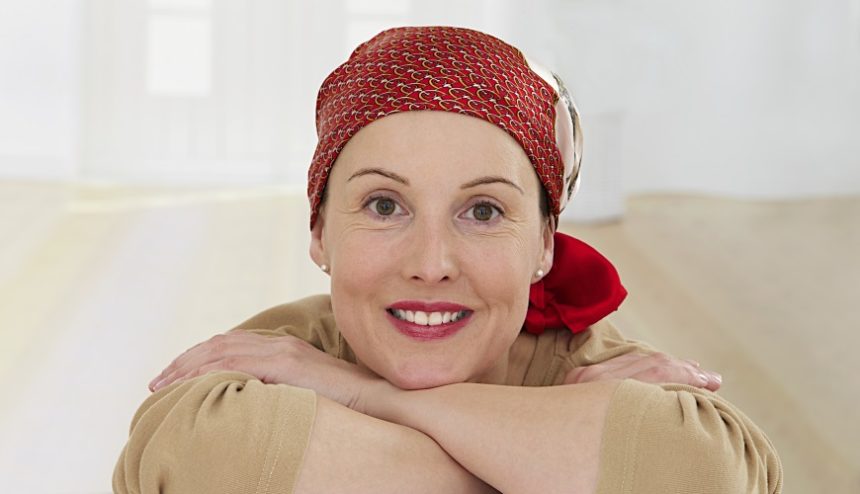At Glacial Ridge Health System, we believe in cancer treatment that is individualized for your specific medical condition, including type and stage of cancer, your medical history, the effectiveness of various treatment options, and more. Our specialty services offer oncology medical care with Dr. Hani Alkhatib, who specializes in the diagnosis and treatment of cancer. Our doctors and oncology-trained nurses are always happy to answer questions about your cancer treatment.
In the next article of our series on cancer information, Cancer – No One Expects It, our oncology care team explains what you need to know about chemotherapy/immunotherapy treatments. A cancer patient also shares her experiences and the benefits of choosing to get her comprehensive cancer care at Glacial Ridge Hospital in Glenwood.
In this article, our oncology-trained registered nurses answer frequently asked questions to provide additional information.
Why do people with the same cancer get different treatments and have different problems?
A lot depends on the stage of the disease and the person. For instance, in breast cancer with lymph nodes that are affected, a woman may receive different treatments depending on whether she is pre- or post-menopausal. Some breast cancers have mutations that can be targeted with immunotherapy (a treatment specific to the type of cancer it is).
The timing of surgery, chemotherapy/immunotherapy, and radiation treatments also vary depending on your specific condition and cancer. Some people may have all three treatment procedures recommended, while others may have one or two. Chemo, radiation, or both may be given before surgery to shrink a tumor or after surgery to kill any microscopic cancer cells that may have escaped the surgery.
What about conventional cancer treatments?
 Surgery is often a successful conventional cancer treatment, as are radiotherapy (after or instead of surgery) and chemotherapy. In addition, cancer treatments can produce remissions in a proportion of cases when a cure is not possible. Your oncologist will explain whether your recommended treatment is likely to result in a cure or if the goal is to control your disease and/or symptoms. The doctor will also talk with you about how high the possibility is that we can achieve your treatment goals.
Surgery is often a successful conventional cancer treatment, as are radiotherapy (after or instead of surgery) and chemotherapy. In addition, cancer treatments can produce remissions in a proportion of cases when a cure is not possible. Your oncologist will explain whether your recommended treatment is likely to result in a cure or if the goal is to control your disease and/or symptoms. The doctor will also talk with you about how high the possibility is that we can achieve your treatment goals.
Why is cancer treatment usually so awful?
Because there is a marginal difference between cancer cells and regular cells, this makes some cancer treatments easier than others. While antibiotics can easily kill bacterial infections and not affect you, cancer doesn’t resemble a bacterial infection. In the process of killing cancer cells, healthy cells/tissues are also damaged in the process.
What are the side effects of chemo?
Side effects can depend on the type of cancer you have, your overall health, and the type of chemotherapy drug you receive. Common side effects include:
- Fatigue
- Nausea or vomiting
- Loss of appetite
- Change of taste or breath
- Sore mouth and throat
- Muscle, bone, and joint aches
- Constipation
- Diarrhea
- Hair loss
There is much that can be done to prevent or lessen the side effects of chemotherapy. Our oncology care team has tips and information to help patients manage their symptoms. These are included in the oncology binder each patient is given at Glacial Ridge. Ask your provider or nurse about relief for specific side effects you are experiencing. To prepare you for your next chemo treatment, write down all symptoms, feelings, pain level, medications, food, etc., and what helped to minimize your symptoms. This helps you to know what to expect at your next chemo so you can plan ahead.
When to Call the Nurse or Doctor When Undergoing Cancer Treatment
The oncology-trained RNs at Glacial Ridge advise patients on what is abnormal. When you are undergoing cancer treatment, call your nurse or doctor if any of the following occur:
- You run a fever of 100.4 or more
- You develop a new cough or shortness of breath
- You have bleeding that doesn’t stop after applying pressure
- You have uncontrolled pain, nausea, or vomiting
Is chemotherapy painful?
You may experience pain as a side effect after the IV is administered, but the IV treatment itself doesn’t usually cause pain. Regardless of when the pain occurs, either during or after chemo, let your nurse know immediately.
What happens during a chemo treatment?
When you arrive for your chemo appointment, bring things to help you relax and pass the time, such as a good book, music, smartphone, crosswords, etc. Your nurse will tell you approximately how long it takes to deliver the IV chemotherapy.
- Your nurse will take your vital signs and ask basic health questions:
- How are you doing?
- How did the last treatment go for you?
- Do you have any questions?
- Have there been any medication changes, etc.?
- The chemotherapy/immunotherapy will be administered via IV inserted in a vein or through an access port
- Meals and snacks are available during chemotherapy
Benefits to having your cancer treatment at Glacial Ridge Hospital:
- Your labs and imaging (ultrasound, MRI, CT, PET-CT, etc.) can all be performed here.
- You can see your oncologist locally.
- Patients can call our hospital anytime if they have a concern.
- Patients have direct contact with the nurses in our oncology department and indirectly with Dr. Alkhatib through the nurse oncology coordinator.
- Above all, you won’t need to travel an hour farther to St. Cloud (one way) for all your appointments, tests, and chemotherapy/immunotherapy treatments. You can stay close to your home, work, and family for a more comfortable and convenient treatment and recovery experience.
To learn more about Glacial Ridge Health System’s advanced, specialized oncology care or to schedule an appointment, call 320.634.4521.


